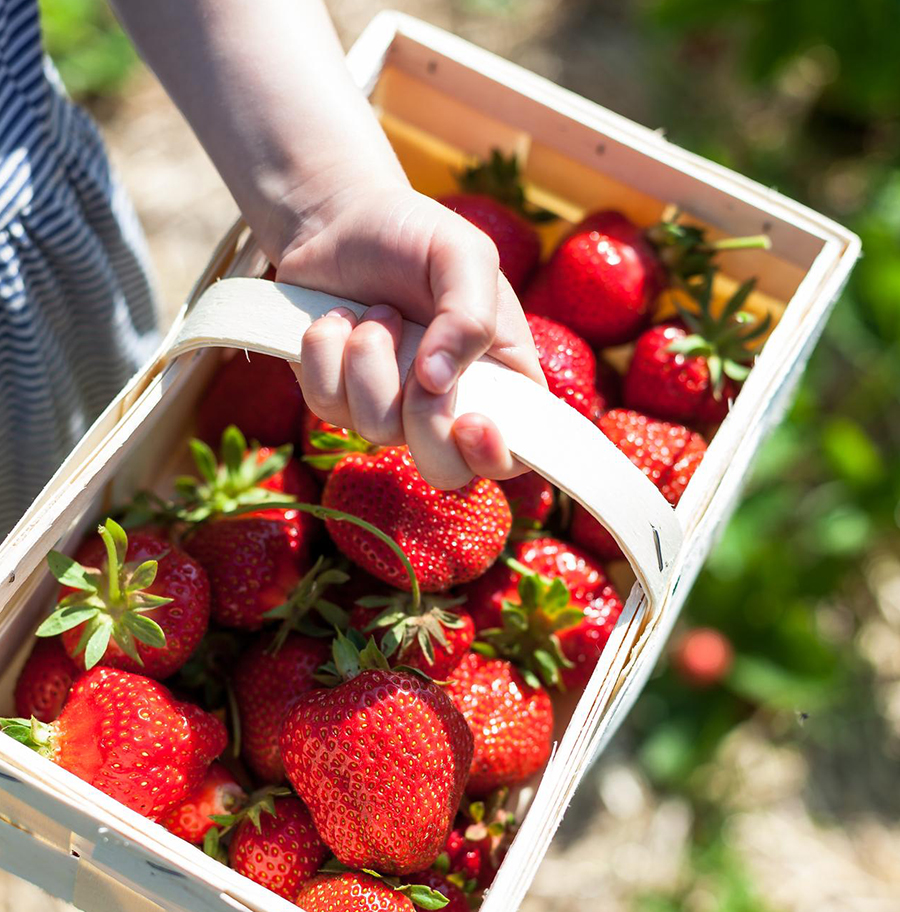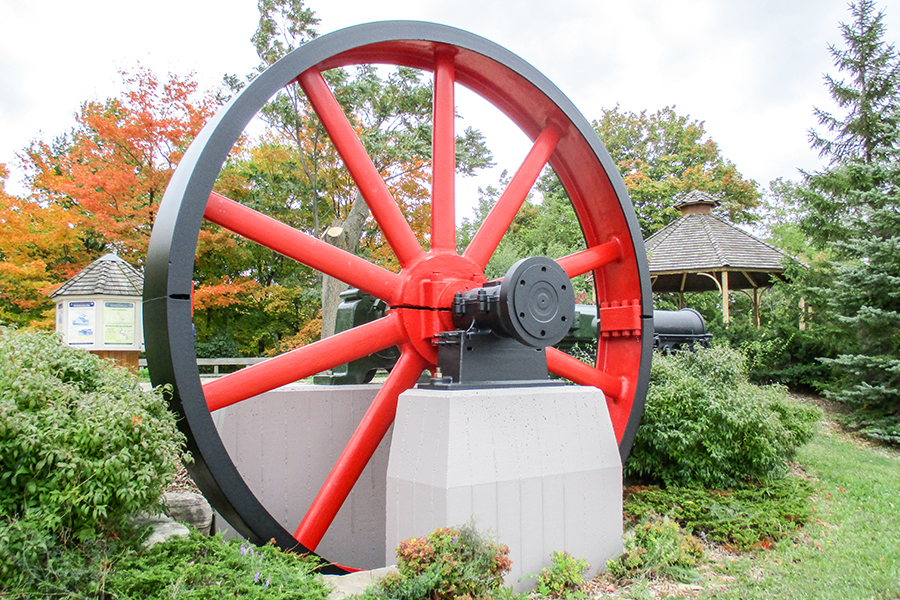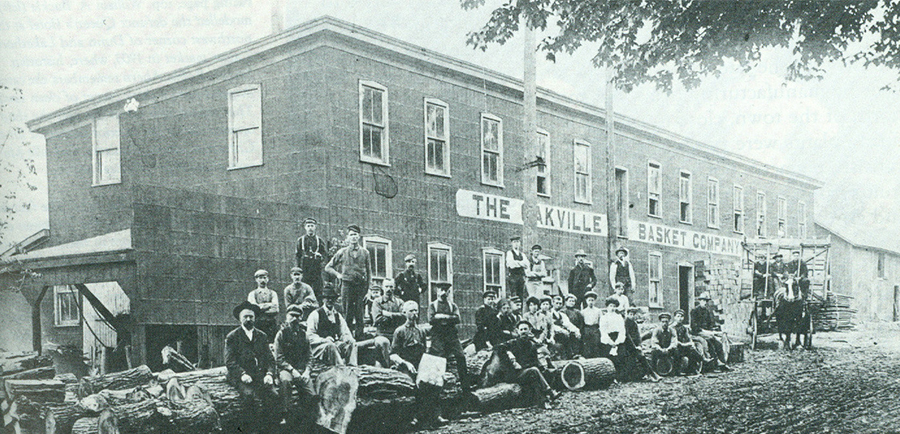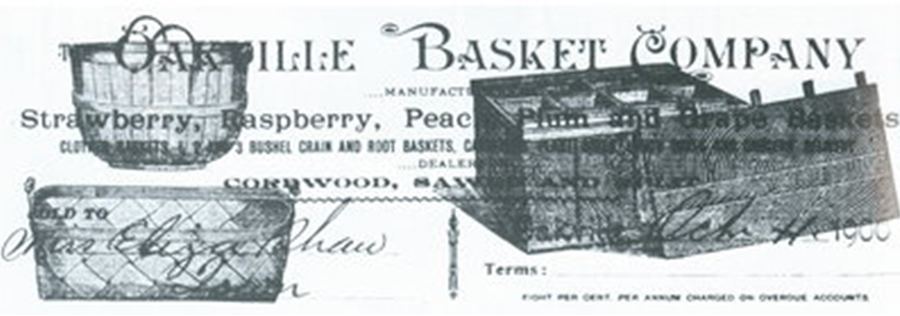It’s hard to think of Oakville as anything but a bustling lakefront town, but in the mid-1800’s it was a farming community that was so small that people scheduled their day around a single whistle.
Oakville became so well known for its strawberries that it was referred to as the strawberry capital of the Canadas and because the strawberries were exported by rail and boat, they needed safe containers.
Hence the story of Oakville’s Basket Factory began.

The factory’s origins date back to 1866 when strawberry farmers John Cross and John Chisholm began making baskets in sheds on their farms that were located around Trafalgar Road. In 1871, with the demand for strawberries and other produce growing, a new basket factory was opened at 356 Trafalgar Road, which was converted from the old Victoria Brewery, across from the Oakville GO station.
The factory was not only significant because it employed so many people but because the steam engine that powered it had a loud whistle that would signal the start of the work day and lunch hour.

George Chisholm, president of the Oakville Historical Society, said the whistle regulated the whole town as it could be heard everywhere. Indeed, it was so loud, it eventually became the town’s official fire alarm. For George, the whistle holds special significance.
“My mother told me the twelve o’clock whistle sounded while I was born,” said George. John Chisholm is his great-great-grandfather’s nephew.
“The factory was very important to the town,” said George. “It was one of the biggest factories in town and the basket factory was probably the largest employer in town for quite a while.”

While the exact number of employees isn’t known, the historical society has a list of the employees who worked there who signed up for the military during the second world war. There are 65 names on the list.
Fire destroyed the factory twice, which isn’t surprising given the baskets were made of a softwood like pine plus beech, birch or maple. Each time it was rebuilt on the Trafalgar Road site. One of the fires, in 1893, was set by former owner, Robert McKenzie Chisholm, who had just been released from the Toronto asylum.

After the 1920 fire, a new factory was rebuilt which remained open until 1984. It would later manufacture tongue depressors and popsicle sticks. The factory hasn’t been forgotten. The name of the last owner, J.M. Wallace, lives on in Wallace Park on Reynolds Street and the last remnant of the factory is parked on a lot near Trafalgar and Cornwall Road. It’s the large 15-foot flywheel that powered the operation.
Local Link
Oakville Historical Society
oakvillehistory.org





